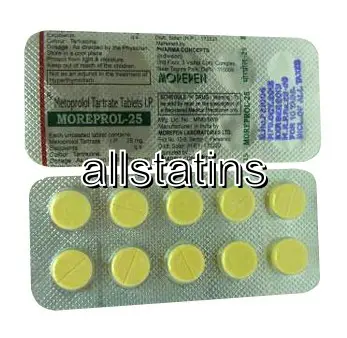| Package | Dosage | Price | Price per Dose | |
|---|---|---|---|---|
| Dosage: 20mg | ||||
| 360 pill | 20mg | $290.61 | $0.81 | |
| 270 pill | 20mg | $240.38 | $0.90 | |
| 180 pill | 20mg | $175.79 | $0.97 | |
| 120 pill | 20mg | $129.15 | $1.08 | |
| 90 pill | 20mg | $105.83 | $1.18 | |
| 60 pill | 20mg | $77.12 | $1.29 | |
| 30 pill | 20mg | $44.83 | $1.49 | |
| Dosage: 40mg | ||||
| 360 pill | 40mg | $355.19 | $0.99 | |
| 270 pill | 40mg | $339.05 | $1.26 | |
| 180 pill | 40mg | $322.90 | $1.79 | |
| 120 pill | 40mg | $240.38 | $2.01 | |
| 90 pill | 40mg | $209.88 | $2.33 | |
| 60 pill | 40mg | $156.06 | $2.60 | |
| 30 pill | 40mg | $91.48 | $3.05 | |

Metoprolol Description
Introduction to Metoprolol
Metoprolol is a widely used medication belonging to the class of beta-blockers. It is commonly prescribed to manage various cardiovascular conditions, including hypertension, angina, and heart rhythm disorders. Its primary role is to reduce the workload on the heart, making it a crucial component in cardiovascular therapy. Patients often find it effective in controlling their blood pressure and preventing heart attacks. As with any medication, understanding its functions, benefits, and potential side effects is essential for safe and effective use.
How Metoprolol Works
Metoprolol works by blocking the action of certain natural chemicals in your body, specifically adrenaline and norepinephrine, on the heart and blood vessels. This blockage results in a slower heart rate, decreased force of contraction, and reduced blood pressure. Consequently, the heart requires less oxygen, which alleviates symptoms of angina and helps prevent heart attacks. The medication's selective action on beta-1 receptors makes it effective in targeting cardiac tissues while minimizing effects on other parts of the body.
Benefits of Using Metoprolol
Many patients report significant improvements in their condition when using Metoprolol. Its ability to lower blood pressure effectively helps prevent strokes and other complications associated with hypertension. For those with angina, it provides relief from chest pain by reducing the heart's oxygen demand. Additionally, Metoprolol is often prescribed after heart attacks to improve survival rates. Its calming effect on the heart rhythm also makes it valuable for managing arrhythmias. Importantly, many users experience a reduction in the frequency and intensity of symptoms, leading to a better quality of life.
Dosage and Administration
Proper dosage of Metoprolol depends on the specific condition being treated, as well as the patient’s response and overall health. It is generally taken orally once or twice daily. It is crucial to follow the prescribing doctor’s instructions carefully. Patients should not adjust their dose without consultation. The medication can be taken with or without food, but consistent timing and adherence are vital for optimal effectiveness. Regular follow-up appointments are necessary to monitor blood pressure and assess the medication’s impact.
Potential Side Effects
While Metoprolol is effective for many, it may cause side effects in some individuals. Common effects include tiredness, dizziness, nausea, and cold hands or feet. Some patients may experience sleep disturbances or depression. Serious but less common side effects include heart rate irregularities, worsening of asthma symptoms, or signs of allergic reactions such as rash or swelling. It is important to report any unusual or severe symptoms to a healthcare professional promptly. Proper management and monitoring can often mitigate adverse effects, ensuring safe use.
Precautions and Interactions
People with certain medical conditions, such as asthma, diabetes, or heart failure, should use Metoprolol cautiously and under medical supervision. It may mask some signs of low blood sugar, making diabetes management more challenging. Combining Metoprolol with other medications, including certain antidepressants or calcium channel blockers, can increase the risk of adverse effects or alter its efficacy. Patients should disclose all medications they are taking to their healthcare provider. Pregnant or breastfeeding women should discuss the risks and benefits before starting this medication.
Conclusion
Metoprolol remains a cornerstone in cardiovascular management, appreciated for its effectiveness and relatively favorable side effect profile. When used appropriately under medical supervision, it can substantially improve health outcomes for patients with hypertension, angina, and specific arrhythmias. As with all medications, informed use, adherence to prescribed dosages, and regular monitoring are essential to maximize benefits while minimizing risks.



